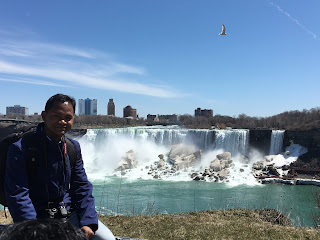The 'joy' of inactive life, in the isolation, away from the Novitiate for almost a month, is yet another level of magnificent and memorable life-experience for all of us. It is, of course, once-in-a-lifetime-experience for the novices and administrators. Although we wish to enjoy the active life of the Novitiate, we are forced to relish it in our dreams while in isolation due to Covid-19.
After several members of the Novitiate Community showed serious symptoms of Covid-19, keeping in mind the safety measures, availability of the hospitals and medications, on 9th May, the entire Novitiate was closed down and all the members (12 novices, Fr Shaji Joseph, the Director of Novices, Br Gabriel Gurung, the Minister and Fr Roshan Kiro, the Socius) were brought down to Matigara for isolation. Jay Ghale, the first year novice, was hospitalized in Dr Chang’s Superspeciality Hospital, Matigara on 2nd May. Fr Shaji was hospitalized in Navjeevan Hospital on 10th May. All throughout our exile in the Senior Home, Matigara, we have been experiencing true hospitality and selfless service of so many fathers and brothers. We are deeply indebted to all of them for offering their helping hand to us in our needs.
 |
| Photo: Roshan Kiro |
Some of the novices sum up their experiences of the Covid-19 quarantine period: Pilat Narzari says, “I experienced that I was like a caged bird gripped by frustration desperately wanting to fly in to the sky.” Anurag Toppo narrates, “I felt separation and isolation in one month with abhorrence, but it was God’s intervention that aided me with the ‘Life of Saints’ and helped me to be positive in all I was going through.” Sanchilit Dungdung opines, “The quarantine period of three weeks gave me a beautiful chance to be with the Saints and journey with them who have experienced loneliness in their lives, like St Therese of Lisieux, St Teresa of Kolkata and many others. I drew encouragement and guidance from them.” Markush Narzary expresses, “The word ‘positive’ (attached to Corona) brought me a great fear, but through God’s love and care, it disappeared from my heart, for God is the best medicine and in him I am safe.” Sushant Xalxo says, “I grew in self knowledge and came to realize God as the ultimate source of hope amidst all helplessness and altruism.” Ashish Basumatary sums up, “Covid-19 filled me with admiration towards nature, to contemplate upon the rustling leaves, chirping of the birds, hovering moon and the twinkling stars...” Praful Lakra summarizes his ordeal, “I experienced great care and love from the community members and others in Matigara, even when I was experiencing hopelessness and fear of death.”
Undoubtedly, May 2021 has been quite challenging for all of us. It was a month of self-introspection and self-surrender into the saving hands of God. We have come to realize deeply our vulnerability and sense of belonging to a larger human relationship in the Society of Jesus and in the suffering humanity in the world.







